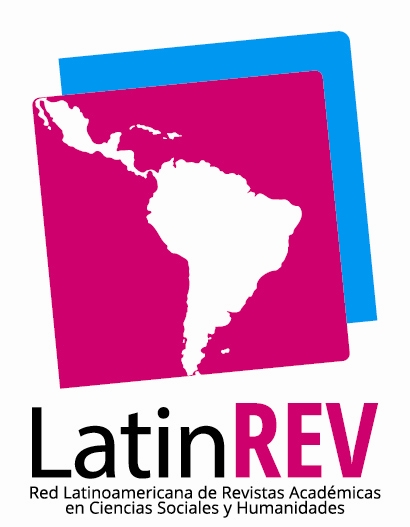Creativity, disability and gender: a view from Special Education
Keywords:
creativity, decoloniality, disability situation, gender, intersectionalityAbstract
This article invites us to think about creativity from a critical and decolonial perspective that favors possible transformations and allows us to question the impositions, oppressions and hierarchies imposed by a Eurocentric perspective. It presents a critical Latin American position on the definitions of creativity and it addresses creativity, gender and disability reflecting on the existing connection between these concepts, and exposing gender as an imposed social construction. This work resorts to different authors to analyze hegemonic and current conceptions of racism, sex-gender, and class, among others, and it highlights the concept of intersectionality to address the multiple discriminations that a person can experience due to their way of being in the world. Besides, it presents conceptual, ideological, and theoretical alternatives to the negative consequences of those studies whose perspectives of analysis lead to reductionist considerations. This work also values the process oriented towards the decoloniality of the concepts addressed in Latin America that enables the development of ideological and cultural perspectives matching local contexts.In this sense, creativity is framed from a Latin American stance due to the need of radical changes in the perspectives that centralize creative processes in isolated individuals without considering the surrounding context. Decoloniality, in turn, is based on the resistanceof racialized and oppressed groups against the dehumanization, exploitation and genocide that emerged from colonization. At the same time, the actions of the special educator are considered, exposing different forms of work and exemplifying some implications of creativity in a concrete way.
Downloads
References
Almeida, María Eugenia y Angelino, María Alfonsina (2012). Debates y perspectivas en torno a la discapacidad en América Latina. Entre Ríos: Editorial Facultad de Trabajo Social. Recuperado de: http://sedici.unlp.edu.ar/handle/10915/26338 (18/10/2021).
Bidaseca, Karina (2014). Los Peregrinajes de los feminismos de color en el pensamiento de María Lugones. Estudios Feministas, 22(3), 953-964.
Butler, Judith (2007). El género en disputa: el feminismo y la subversión de la identidad. Barcelona: Paidós.
Castro-Gómez, Santiago y Grosfoguel, Ramón (2007). El giro decolonial: reflexiones para una diversidad epistémica más allá del capitalismo global. Bogotá: Siglo del Hombre Editores.
Chacón Araya, Yamileth (2005). “Una revisión crítica del concepto de creatividad”, en Revista Electrónica Actualidades Investigativas en Educación, 5 (1), 0. Recuperado de: https://www.redalyc.org/articulo.oa?id=44750106 (18/10/2021).
Díaz, Raúl (2012). “Discapacidad y mirada colonial. Reflexiones desde perspectivas feministas y descoloniales” en Almeida y Angelino (Comps), Debates y perspectivas en espalda a la discapacidad en América Latina, 27-6. Paraná: Universidad Nacional de Entre Ríos. UNER. Facultad de Trabajo Social.
Dominguez, Patricio y Barcia, Vanesa (2017). “El cuerpo en la biopolítica: Una perspectiva alternativa desde los aportes de Le Breton, Foulcault y Rose”, Reynoso y Martín (Comps.), Cuerpo, arte y subjetividad en la biopolítica contemporánea, 16-29. UNRC. Facultad de Ciencias Humanas. CEPRI.
Elisondo, Romina (2012). “La creatividad en personas comunes. Potencialidades en contextos cotidianos” en Doncio y Elisondo (Coords.) Estudio de la creatividad: La travesía de Alfonsina, de Astor, de Julio y de Marías, 60-100. La Laguna (Tenerife). Sociedad Latina de Comunicación Social. Recuperado de: https://issuu.com/revistalatinadecomunicacion/docs/10cbadonolo (20/10/2021)
Elisondo, Romina (2015a). “La creatividad como perspectiva educativa. Cinco ideas para pensar los contextos creativos de enseñanza y aprendizaje”, en Revista Electrónica Actualidades Investigativas en Educación, 15 (3), 1-23.
Elisondo, Romina (2015b). Evaluación de la creatividad: análisis de variables alternativas relacionadas con la forma y el contenido de las respuestas en el test CREA. Tesis de Doctorado. Universidad de Murcia. Recuperado de: https://www.tdx.cat/bitstream/handle/10803/334985/TRCE.pdf?sequence=1 (07/10/21).
Elisondo, Romina (2018). Creatividad y educación: llegar con una buena idea. Creatividad y Sociedad (27), 145-166. Recuperado de: https://ri.conicet.gov.ar/handle/11336/98611 (25/09/21).
Espinosa Miñoso, Yuderkys (2014). Una crítica descolonial a la epistemología feminista crítica. El cotidiano, 184, 7-12.
Fanon, Frantz (2010). Piel Negra, Máscara Blancas. Madrid: Akal.
Ferrante, Carolina y Ferreira, Miguel (2011). “Cuerpo y habitus: el marco estructural de la experiencia de la discapacidad. Intersticios”, en Revista sociológica de pensamiento crítico, 5 (2), 1-10.
Ferrari, Marcela (2020). “La discapacidad y el planteo de la descolonialidad”, en Revista del CISEN Tramas/Maepova, 8 (1), 83-102.
Garrido Lora, Manuel (2007). “Estereotipos de género en la publicidad. La creatividad en la encrucijada sociológica”, en Creatividad y sociedad: revista de la Asociación para la Creatividad, 11, 53-71.
Gasparin Agustina y Cornejo Maida (2017). “Apariencias creadas: la construcción de las imágenes desde una perspectiva foulcaultiana”, en Reynoso y Martín (Comps.) Cuerpo, Arte y Subjetividad en la Biopolítica Contemporánea, 30-38. UNRC. Facultad de Ciencias Humanas. CEPRI.
Glăveanu, Vlad. & Sierra, Zayda. (2015). “Creativity and epistemologies of the South”, Culture & Psychology, 21 (3), 340-358.
Grosfoguel, Ramón (2011). La descolonización del conocimiento: diálogo crítico entre la visión descolonial de Frantz Fanon y la sociología descolonial de Boaventura De Sousa Santos. Formas-Otras: Saber, nombrar, narrar, hacer, 97-108.
Ibarra Rojas, Lucero (2018). Mujeres y creatividad: una mirada feminista a las sombras de la propiedad intelectual. Recuperado de: http://derechoenaccion.cide.edu/mujeres-y-creatividad-una-mirada-feminista-a-las-sombras-de-la-propiedad-intelectual/ (30/08/21).
LEY 26.378: Convención sobre los derechos de las personas en situación de discapacidad. Recuperado de http://servicios.infoleg.gob.ar/infolegInternet/anexos/140000-144999/141317/norma.htm (18/10/21).
Lugones, María (2011). Hacia un feminismo descolonial. La manzana de la discordia, 6 (2), 105-119. Recuperado de: https://hum.unne.edu.ar/generoysex/seminario1/s1_18.pdf (4/09/21).
Lugones, María (2012). Subjetividad esclava, colonialidad de género, marginalidad y opresiones múltiples. Recuperado de: http://rcci.net/globalizacion/2013/fg1576.htm (10/09/21).
Maffia, Diana (2009). Los cuerpos como frontera. Trabajo presentado en el I Congreso Internacional «Violencias, maltrato y abuso. Reconstruyendo el abuso de poder en los vínculos». Buenos Aires. Recuperado de: https://josefaruiztagle.cl/wp-content/uploads/2020/09/Los-cuerpos-como-frontera-Diana-Maffia-.pdf (29/08/2021).
Moscoso Pérez, Melania (2007). “Menos que mujeres: los discursos normativos del cuerpo a través del feminismo y la discapacidad”, en Arpal Poblador & Mandiola Gonzalo (Ed.): Estudios sobre cuerpo, cultura y tecnologías. Bilbao: Servicio Editorial de la Universidad del País Vasco.
Oliver, Michael (1990). Política de discapacidad. Londres: Macmillan International Higher Education.
Palacio, Agustina y Romaniach, Javier (2007). El modelo de la diversidad. La bioética y los derechos humanos como herramientas para alcanzar la plena dignidad en la diversidad funcional. Madrid: Diversitas.
UNESCO (2014). Igualdad de género, patrimonio y creatividad. Recuperado de https://redined.mecd.gob.es/xmlui/bitstream/handle/11162/193303/Igualdad.pdf?sequence=1&isAllowed=y (6/09/21).
Downloads
Published
Issue
Section
ARK
License
Copyright (c) 2021 María Laura Cardozo, Cintia Zabaleta, Marcela Inés Marioli, María Laura de la Barrera, Romina Elisondo

This work is licensed under a Creative Commons Attribution 4.0 International License.






